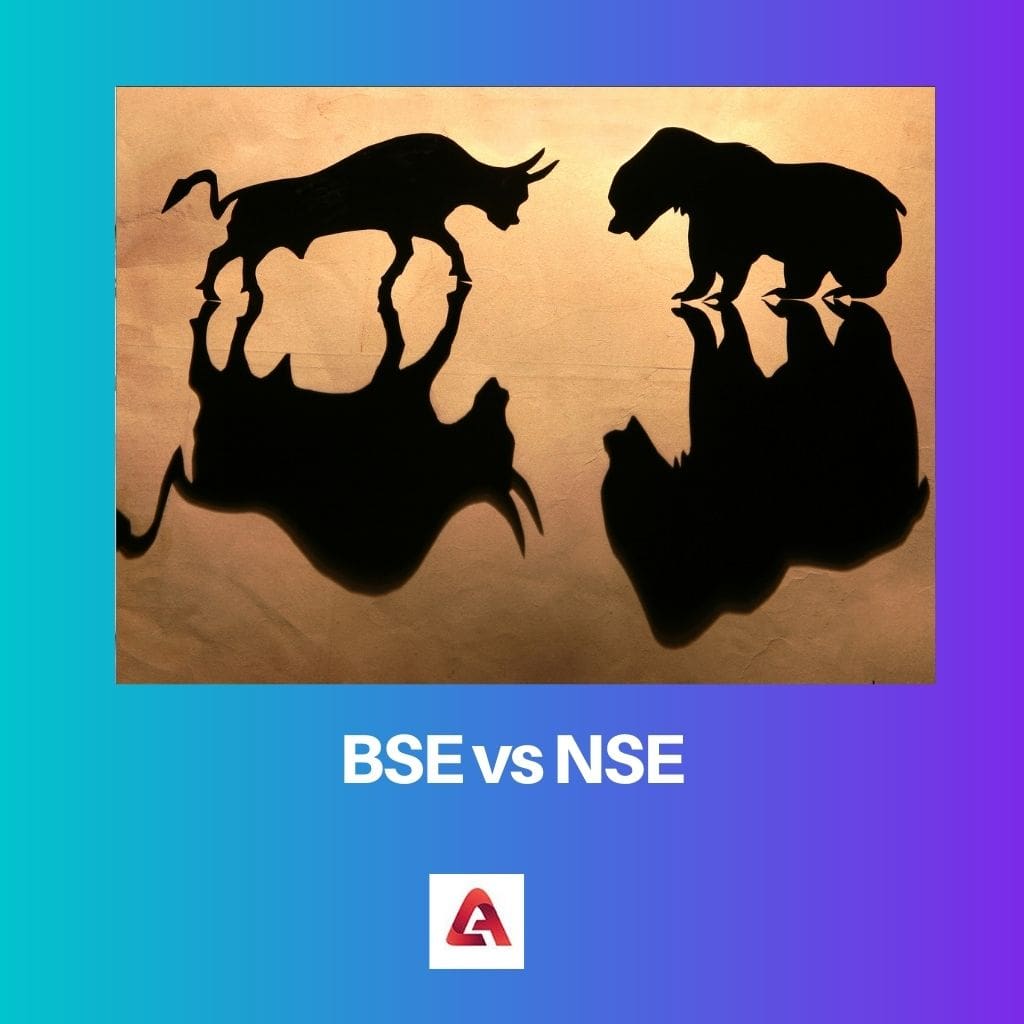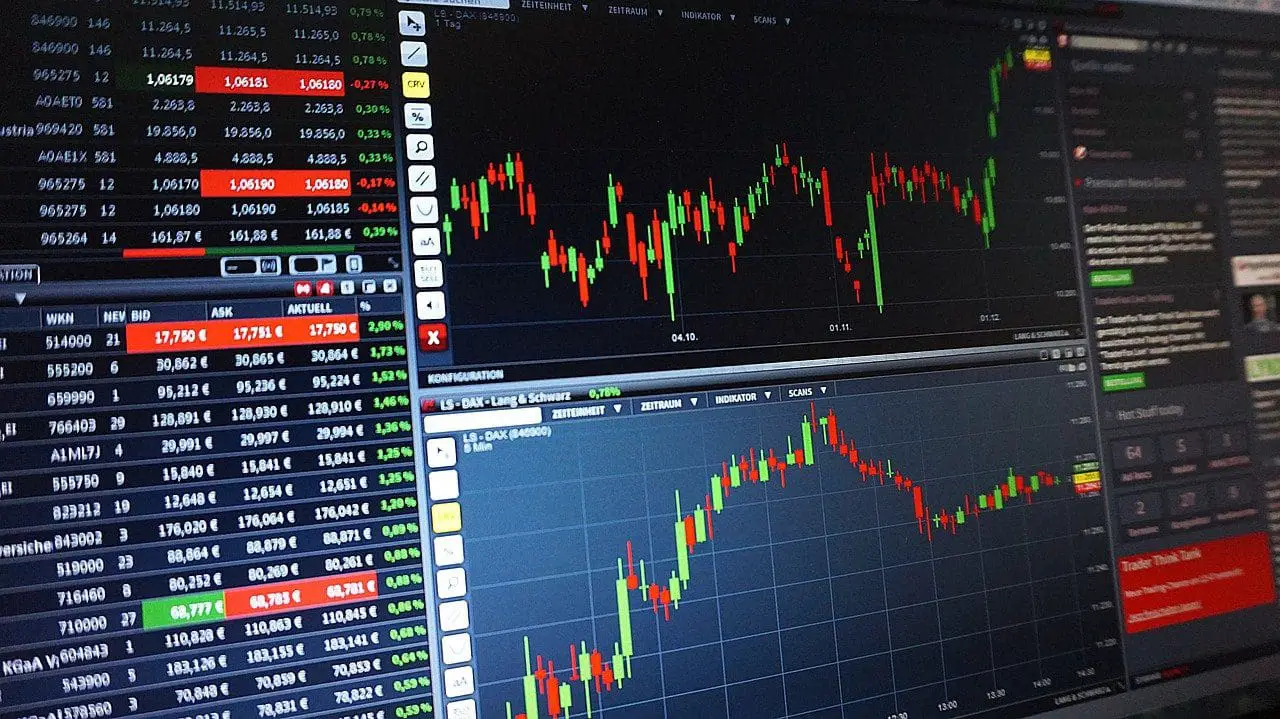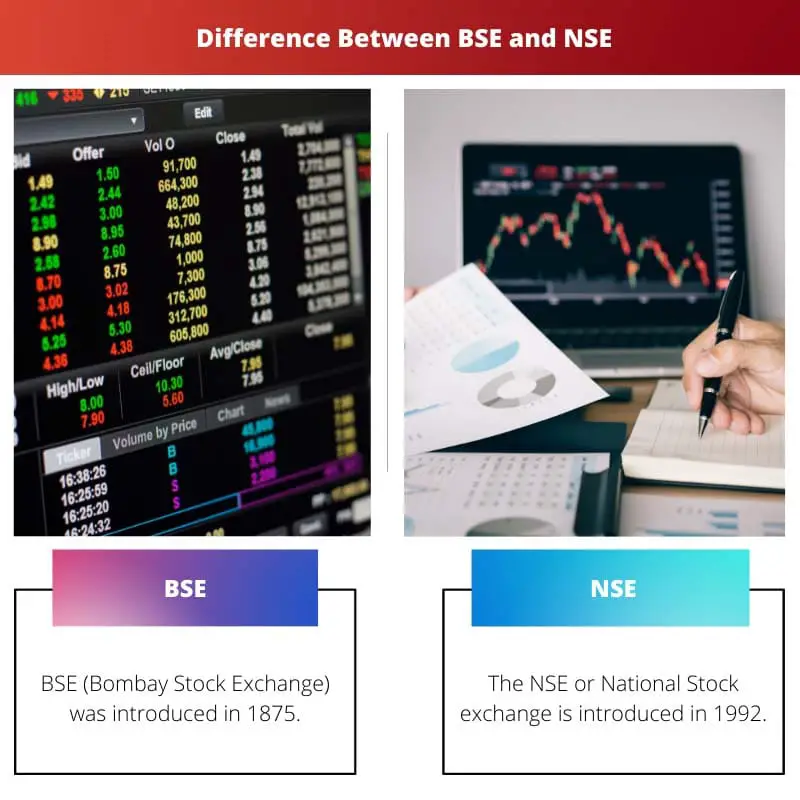BSE (Bombay Stock Exchange) is the oldest stock exchange in Asia, established in 1875, and is located in Mumbai, India. NSE (National Stock Exchange) is a newer exchange founded in 1992, also located in Mumbai.
Key Takeaways
- BSE (Bombay Stock Exchange) is the oldest stock exchange in Asia and the first to be established in India.
- NSE (National Stock Exchange) is the largest stock exchange in India in terms of market capitalization.
- BSE has a long history and more traditional trading practices than NSE, while NSE is known for its advanced technology and modern trading systems.
BSE vs NSE
BSE, or the Bombay Stock Exchange, was founded in 1875 and is one of the oldest stock exchanges in Asia. It is headquartered in Mumbai and has over 5,000 listed companies. NSE was founded in 1992 and is located in Mumbai. It is the largest stock exchange in India in terms of market capitalization.

Comparison Table
| Feature | BSE (Bombay Stock Exchange) | NSE (National Stock Exchange) |
|---|---|---|
| Established | 1875 | 1992 |
| Headquarters | Mumbai, India | Mumbai, India |
| Market Capitalization (as of Mar 2025) | ₹334.7 lakh crore | ₹36,422,360.83 crore |
| Trading Volume | Lower | Higher |
| Liquidity | Lower | Higher |
| Benchmark Index | SENSEX (Top 30 companies) | NIFTY 50 (Top 50 companies) |
| Number of Listed Companies | ~5,800 | ~1,600 |
| Trading Platform | BOLT (BSE On-Line Trading) | NEAT (National Exchange of Automated Trading) |
| Reach | Over 450 cities in India | Over 1,500 cities in India |
| Fees | Generally lower | Generally higher |
What is BSE?
The Bombay Stock Exchange (BSE) is the oldest stock exchange in Asia, established in 1875. It is located in Mumbai, India, and holds a significant place in the country’s financial landscape. BSE serves as a primary platform for trading equities, derivatives, debt instruments, and commodities.
Historical Significance
BSE has a rich history, evolving from an informal gathering of brokers under a banyan tree to a sophisticated electronic trading platform. Throughout its journey, BSE has played a pivotal role in shaping India’s capital markets and has been instrumental in facilitating the growth of the Indian economy.
Products and Services
BSE offers a wide range of financial products and services, catering to diverse investor needs. Its offerings include equities, mutual funds, derivatives, currency derivatives, interest rate derivatives, debt instruments, and commodities. Through its various indices such as the S&P BSE Sensex and BSE 500, BSE provides benchmarks for investors to gauge market performance.
Regulatory Framework
BSE operates under the regulatory framework established by the Securities and Exchange Board of India (SEBI), the primary regulatory body overseeing India’s securities markets. It ensures compliance with rules and regulations to maintain market integrity, transparency, and investor protection.
Technology and Infrastructure
In recent years, BSE has made significant investments in technology and infrastructure to enhance trading efficiency and provide seamless access to market participants. Its robust electronic trading platform enables swift order execution and real-time market data dissemination, ensuring a smooth trading experience for investors.

What is NSE?
The National Stock Exchange (NSE) is one of the leading stock exchanges in India, established in 1992. Headquartered in Mumbai, NSE has emerged as a prominent player in the country’s financial markets, offering a comprehensive platform for trading various financial instruments.
Establishment and Growth
Founded as a response to the need for a modern electronic exchange in India, NSE introduced advanced technologies and practices to revolutionize the Indian capital markets. Its establishment marked a significant shift from traditional open outcry systems to electronic trading, bringing efficiency, transparency, and accessibility to market participants.
Products and Services
NSE provides a diverse array of financial products and services to investors, including equities, derivatives, currency derivatives, debt instruments, ETFs (Exchange Traded Funds), and mutual funds. It is renowned for its benchmark index, the Nifty 50, which comprises 50 actively traded stocks representing various sectors of the Indian economy.
Regulatory Compliance
NSE operates under the regulatory oversight of the Securities and Exchange Board of India (SEBI), adhering to stringent regulations aimed at ensuring fair, transparent, and orderly markets. It complies with regulatory norms related to listing requirements, trading practices, investor protection, and market surveillance.
Technology and Infrastructure
With a strong focus on technological innovation, NSE has developed state-of-the-art trading platforms and infrastructure to facilitate seamless trading operations. Its robust electronic trading systems, high-speed connectivity, and advanced risk management mechanisms contribute to efficient market functioning and liquidity.

Main Differences Between BSE and NSE
- Establishment:
- BSE: Established in 1875, making it the oldest stock exchange in Asia.
- NSE: Established in 1992, focusing on modern electronic trading systems.
- Location:
- BSE: Located in Mumbai, India.
- NSE: Also headquartered in Mumbai, India.
- Historical Significance:
- BSE: Holds a rich historical legacy, shaping India’s capital markets over decades.
- NSE: Introduced modern electronic trading, revolutionizing India’s stock market landscape.
- Products and Services:
- BSE: Offers equities, derivatives, debt instruments, commodities, and mutual funds.
- NSE: Provides a diverse range of financial products including equities, derivatives, currency derivatives, ETFs, and mutual funds.
- Benchmark Indices:
- BSE: Known for the S&P BSE Sensex and BSE 500 among others.
- NSE: Famous for the Nifty 50 index, representing the performance of 50 actively traded Indian stocks.
- Trading Mechanisms:
- BSE: Traditionally operated through open outcry system, now predominantly electronic trading.
- NSE: Pioneered electronic trading in India, offering efficient and automated trading platforms.
- Technology and Infrastructure:
- BSE: Invested in technology upgrades, but historically not as technologically advanced as NSE.
- NSE: Known for its advanced technology infrastructure, high-speed connectivity, and robust trading systems.
- Regulatory Compliance:
- Both exchanges operate under the regulatory oversight of the Securities and Exchange Board of India (SEBI), adhering to regulatory norms for fair and transparent market operations.

The comprehensive overview of BSE and NSE serves as a foundation for understanding their distinct approaches and contributions to the Indian financial markets.
The delineation between BSE’s legacy and NSE’s modern approach underscores the diversity and dynamism of the Indian stock exchanges.
The comparison table effectively encapsulates the key differences in trading practices, market share, and technologies adopted by BSE and NSE.
The operational disparities and market focus of BSE and NSE underscore their contributions to the Indian financial markets, catering to diverse investor needs and trading preferences.
Absolutely, the regulatory oversight of SEBI ensures that both BSE and NSE adhere to compliance standards, safeguarding investor interests.
The overall focus of BSE on traditional trading methods and NSE’s emphasis on modern technology offers a comprehensive perspective on the Indian stock exchanges.
The distinct characteristics and market influence of BSE and NSE reflect their individual contributions to the Indian capital markets, catering to diverse investor bases.
The regulatory framework and compliance mechanisms governing BSE and NSE play a pivotal role in ensuring investor protection and market integrity.
Absolutely, the BSE Sensex and NSE’s global market presence underscore their significance in the financial ecosystem.
Interesting insight into the differences between BSE and NSE. Their historical context and technological advancements provide a comprehensive overview of the Indian stock exchanges.
Indeed, the evolution of both BSE and NSE sheds light on the changing landscape of financial markets in India.
Well-researched and informative analysis. The comparison table offers a clear understanding of the distinct characteristics of these exchanges.
The influence and regulatory compliance of BSE and NSE highlight their pivotal role in shaping the Indian capital markets and fostering investor confidence.
The historical significance and technological evolution of BSE and NSE offer valuable insights into their respective contributions to the Indian financial markets.
Indeed, the trading volumes, market capitalization, and investor base of BSE and NSE reflect their significance in the Indian financial landscape.
The comparison between BSE and NSE offers a nuanced understanding of their trading mechanisms, technology platforms, and regulatory frameworks, contributing to the broader financial ecosystem.
Absolutely, the investor protection measures implemented by BSE and NSE are vital in maintaining market integrity and investor confidence.
Indeed, the distinct trading hours and order book transparency of BSE and NSE provide unique insights into their operational dynamics.
The comprehensive comparison between BSE and NSE encapsulates their distinct market presence, technological platforms, and regulatory frameworks, providing a holistic view of the Indian stock exchanges.
The evolution of BSE and NSE reflects the broader transformation of financial markets, encapsulating the diversity and dynamism of the Indian stock exchanges.
Absolutely, the emphasis on transparency, efficiency, and market accessibility by NSE aligns with the global market dynamics and investor expectations.
The in-depth exploration of BSE and NSE’s key functions and operations sheds light on the critical role played by these stock exchanges in the Indian financial system.
Absolutely, the market indices managed by BSE and NSE provide valuable insights into the performance and trends of the Indian stock market.
The vision and objectives of NSE reflect its commitment to fostering a fair, transparent, and efficient market for all market participants.
The historical context and technological transformation of BSE and NSE offer valuable insights into the evolution of Indian stock exchanges over time.
Indeed, the comparison highlights the transition from traditional trading methods to cutting-edge technology, shaping the Indian financial landscape.
The technological disparity and market focus between BSE and NSE emphasize the evolution of trading practices over time. NSE’s electronic platform and global investor base indeed set it apart.
Absolutely, NSE’s emphasis on modern trading technology reflects its alignment with global market dynamics.
The comparison between BSE’s traditional infrastructure and NSE’s advanced technology presents a compelling narrative of the stock exchanges in India.